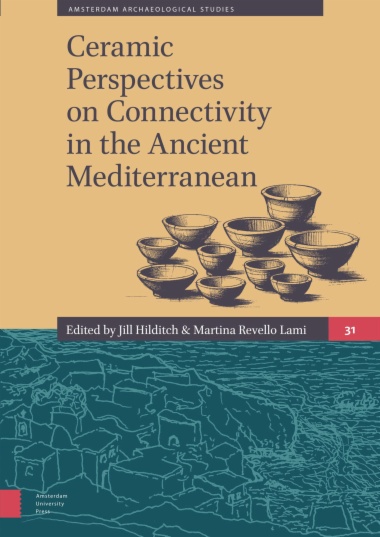The identification of ceramic imports within prehistoric and historic assemblages has long been the primary indicator for identifying connections between different sites and regions. Yet this has fostered a presence/absence diagnosis for contact between different communities. Approaches such as post-colonial perspectives and network analysis, which focus on the nature of the connections, are now beginning to offer more meaningful ways of considering past interactions. These approaches can bridge the traditional divide between “prehistoric” and “historic” and offer a valuable contribution to the wider study of past interactions in the ancient Mediterranean.
The geographical or topographical setting of an archaeological site is often acknowledged as an important factor in their significance or how well connected the community was within the cultural landscape. But to what extent do geographical categories such as “island,” “coast,” “mainland” or “hinterland” influence modern ideas on the dynamics of these ancient communities? This volume uses ceramic studies across multiple spatial and diachronic scales to provide new insights into the connectivity of ancient Mediterranean communities.
- Cover
- Contents
- Preface
- Introduction
- Jill Hilditch & Martina Revello Lami
- Mediterranean archaeology in a time of flood
- Theme 1 - Intra-regional connectivity
- Early pottery technology, production and circulation: the case of Early Neolithic Thessaly, Greece
- Local, import and imitation pottery at Cerveteri: new perspectives on early Etruscan connectivity in Italy and in the eastern Mediterranean
- Shifting perspectives: ceramics and connectivity in the central Ionian archipelago from the Archaic period to the foundation of Nicopolis
- Making use of time and space: using African Red Slip Ware as an indicator of economic activity in Mid- and Late Roman Thespiae and Tanagra
- Dean Peeters, Philip M. Bes, Jeroen Poblome & John L. Bintliff
- From Neapolis’ harbour to the Apennines: coast-hinterland dynamics in AD 472 Campania
- Girolamo Ferdinando De Simone & Caterina Serena Martucci
- Theme 2 - Network perspectives on connectivity
- To change or to exchange? The formation of ceramic landscapes in Neolithic Thessaly (Greece)
- Socio-political networks of the Late Bronze Age Euboean Gulf: the ceramic evidence
- Barbarian Ware strikes again: problems and potential significance of a particular ceramic assemblage for understanding past networks
- Kimberley A.M. van den Berg
- Aegean amphoras: thinking aloud about networks of production and distribution
- A Greek island in the Delta? Analysing the ceramic assemblage from Naukratis
- Theme 3 - Connecting style and identity
- Interconnections in the central Aegean: the ceramic evidence from the early settlement of Kephala on Skiathos
- Ceramic hybridity in a non-colonial context: the northern Aegean perspective
- Tracing the mundane: circulation of Coarse Cream Ware in Central Italy between the sixth and fourth centuries BC
- Thessalian seascapes and landscapes of connectivity
- Theme 4 - Connectivity vs insularity
- Geographic isolation and trade networks in Prepalatial Crete: the pottery from the cemetery of Livari, south-eastern Crete
- Yiannis Papadatos & Eleni Nodarou
- Insularity and cosmopolitanism in Ayia Irini, Kea
- Evi Gorogianni and Natalie Abell
- Shifting notions and changing patterns of island-mainland interaction: acase study on Bronze Age Rhodes and the Dodecanese archipelago
- Connectivity vs. Insularity: reading the ceramic record from Early Iron Age Cyprus
- List of Contributors

